Polygamy in America
By Lisa Ling
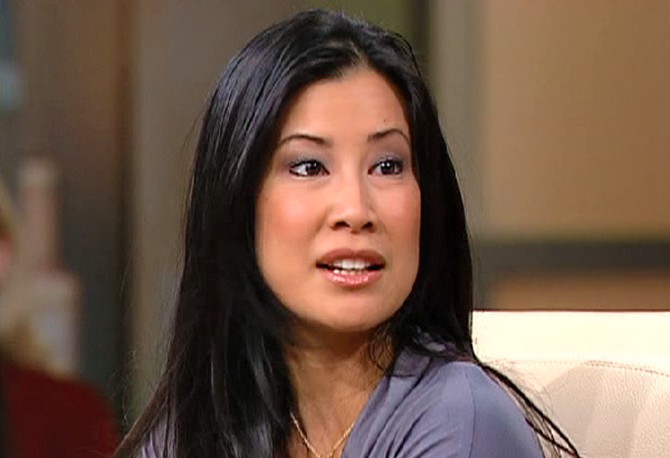
What if your husband came to you and said, "I want another wife?" Even though polygamy is illegal in America, experts say there are 30,000 to 50,000 people living in plural families across the country.
For most people, the word polygamy conjures up images of child brides dressed straight out of the 1800s. On September 25, 2007, this stereotype was further reinforced when polygamist sect leader Warren Jeffs was convicted of being an accomplice to the rape of a 14-year-old girl. Yet the isolated, cult-like communities only tell half the story. The other side shows extravagant homes in typical suburban neighborhoods filled with willing wives and dozens of children. What is life really like in a polygamist community? Lisa Ling investigates the changing face of plural families and explores communities that both make and break the stereotypes.
For most people, the word polygamy conjures up images of child brides dressed straight out of the 1800s. On September 25, 2007, this stereotype was further reinforced when polygamist sect leader Warren Jeffs was convicted of being an accomplice to the rape of a 14-year-old girl. Yet the isolated, cult-like communities only tell half the story. The other side shows extravagant homes in typical suburban neighborhoods filled with willing wives and dozens of children. What is life really like in a polygamist community? Lisa Ling investigates the changing face of plural families and explores communities that both make and break the stereotypes.

Valerie considers herself a typical soccer momexcept her husband has two other wives and a total of 22 children in the house. She is her husband's third wife and has eight children. By sharing her story, Valerie hopes to show a different side of the polygamist lifestyle. "My hope is to change some of those stereotypes, break the stereotypes that people havethat it's oppressive and abusive to women and children, that we're all living in these cults and being brainwashedI don't live like that. I live in just a little suburban neighborhood and my children go to public school. I feel like we have a very normal lifestyle."
At the same time, Valerie says that a plural family is not always easy. "It can be hard when a wife goes out the door with your husband," Valerie says. "We have had jealousies and there have been those times and we can't sugarcoat it and say that, 'Oh, it's so perfect and we love it and we love everyone.' You know, we all have our hard times just like any other people."
At the same time, Valerie says that a plural family is not always easy. "It can be hard when a wife goes out the door with your husband," Valerie says. "We have had jealousies and there have been those times and we can't sugarcoat it and say that, 'Oh, it's so perfect and we love it and we love everyone.' You know, we all have our hard times just like any other people."
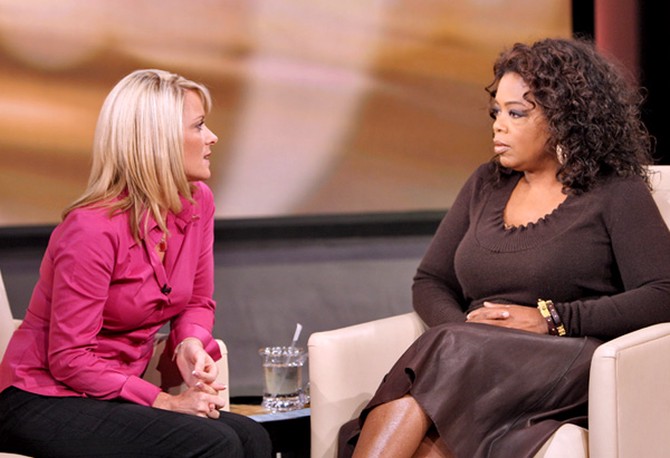
Ali and Vicki, the two other wives in Valerie's family, stayed at home during The Oprah Show taping because Vicki was expecting her seventh baby, bringing the house total to 22 children. Ali is not only the first wife in the familyshe is also Valerie's twin sister. "We have a really good system where we work together with one another," Valerie says.
With 22 children to look after, Valerie and the other wives rely on each other for support. "It's a lot of managing and everything like that. All of our children are in sports or music, and so we get this big calendar and we say, 'Okay, I've got music lessons this day' and 'Can you take the kids while I go to soccer this day,' and it just kind of works."
With 22 children to look after, Valerie and the other wives rely on each other for support. "It's a lot of managing and everything like that. All of our children are in sports or music, and so we get this big calendar and we say, 'Okay, I've got music lessons this day' and 'Can you take the kids while I go to soccer this day,' and it just kind of works."
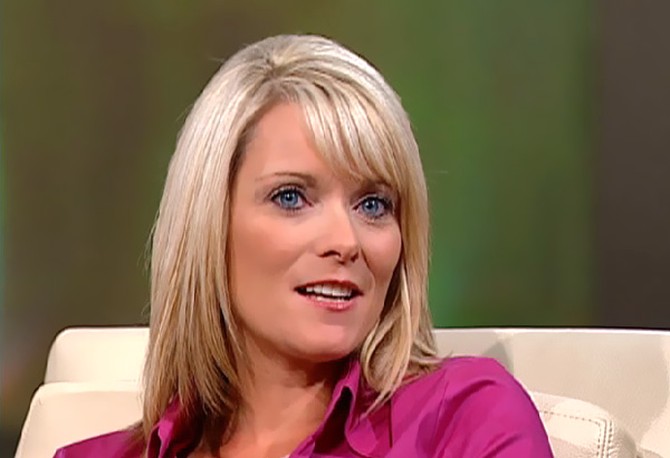
Valerie says she considers herself the third wife although she and her husband are not legally married. "I call myself his spouse but legally I am not. That's just a label I put on myself."
Although Valerie is open about her plural family, her husband would not appear on camera. "It's too much of a risk for him," Valerie says. "Utah law is really absurd, because if a man were to live with another woman besides his wife and then call her a wife and support her children, that's criminal and they can get zero to five years for that. That's considered a third-degree felony. But if they choose to have a mistress, then there's a blind eye or a wink, and that's really unfair in this society."
Instead of hiding in fear, Valerie wishes she could live her life openly. "We really hope to see [polygamy] decriminalized. Not necessarily legalized because I don't think necessarily that it should be for everyone. But I feel like I should have the right to live this way when this is a world of such alternative lifestyles," Valerie says.
Although Valerie is open about her plural family, her husband would not appear on camera. "It's too much of a risk for him," Valerie says. "Utah law is really absurd, because if a man were to live with another woman besides his wife and then call her a wife and support her children, that's criminal and they can get zero to five years for that. That's considered a third-degree felony. But if they choose to have a mistress, then there's a blind eye or a wink, and that's really unfair in this society."
Instead of hiding in fear, Valerie wishes she could live her life openly. "We really hope to see [polygamy] decriminalized. Not necessarily legalized because I don't think necessarily that it should be for everyone. But I feel like I should have the right to live this way when this is a world of such alternative lifestyles," Valerie says.
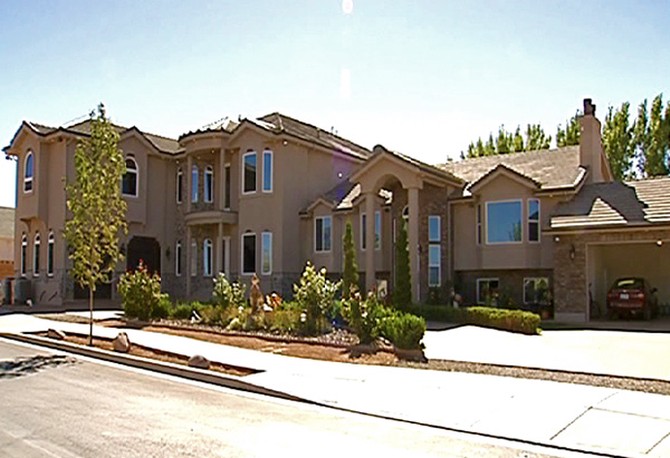
After two weeks of negotiating, Lisa Ling and The Oprah Show crew were granted entrance into one of the most exclusive polygamist communities in the country. Centennial Park, Arizona, is home to approximately 1,500 people. Pictured here is Richard's house, who has three wives. Ruth, another Centennial Park resident, takes Lisa on a tour inside a 30,000-square-foot mansion with three levels, three wings and 33 bedrooms. "The homes in Centennial Park are just these enormous, palatial houses. They are just never ending, some of them," Lisa says. She asks Ruth if it is fair to call Centennial Park a polygamist community. "I think it's fair because it's a fundamental belief for most of us, whether they live it at this time or not," Ruth says.
How do these families afford to live in mansions? "Certainly not all the homes are that palatial but a lot of them are, because they do have enormous families and the people in Centennial Park seem to be very hard working," Lisa says. "What's also interesting about these very large plural families is that everybody contributes. So it's not like the wives are all home taking care of the family. Some of them may be, but some of them may be contributing to the economy of the familyand the kids as well."
How do these families afford to live in mansions? "Certainly not all the homes are that palatial but a lot of them are, because they do have enormous families and the people in Centennial Park seem to be very hard working," Lisa says. "What's also interesting about these very large plural families is that everybody contributes. So it's not like the wives are all home taking care of the family. Some of them may be, but some of them may be contributing to the economy of the familyand the kids as well."
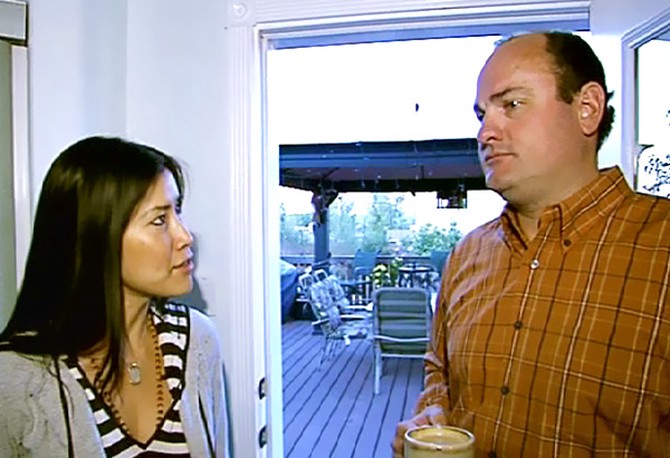
It is very rare for a polygamist man to speak publicly about his relationships, but Richard, a successful businessman who lives in Centennial Park with his three wives, agrees to let Lisa visit his home because he says he wants to show the world another side to polygamy. "I'll just come out and tell you, I feel very blessedthis lifestyle is wonderful," he says. "We bring these women into the home and they are treated incredibly. They have every convenience and every single thing that can be provided for them. So it's a very mutual relationship."
What kind of role does love play in Richard's marriages? "Love plays a huge role, and it plays a role in each one of my marriages," Richard says. "I love these ladies." As far as sleeping arrangements go, Richard says he sleeps in his bedroom and his wives each have their own bedroom. "My options aren't for gratification of my lusts," he says. "The activities that we do together as a couple are private and we have those relationships."
What kind of role does love play in Richard's marriages? "Love plays a huge role, and it plays a role in each one of my marriages," Richard says. "I love these ladies." As far as sleeping arrangements go, Richard says he sleeps in his bedroom and his wives each have their own bedroom. "My options aren't for gratification of my lusts," he says. "The activities that we do together as a couple are private and we have those relationships."

Richard met his first wife, Julena, in high school. Next came Tina, Julena's sister. And finally Rebecca, Richard's co-worker joined the family as the third wife. Now, the three women seem to be inseparable. Although they all love the same man, Julena says this doesn't cause any conflict between them. "We're fulfilled with other things," Julena says. "We're fulfilled with friendship." They have become so close that if anything were to ever happen to Richard, Julena says that her decision to find a new husband would include Tina and Rebecca as well. "We'd probably stay together," Julena says.
Rebecca says she thinks the three wives get spoiled more than Richard does. "There are times in our lives where we're caring about each other so much, sometimes he gets forgotten. Sometimes he has to fend for himself," she says.
Julena says there was no force involved in her plural marriage. "It's our choice. We wanted to," she says. And if it came to the point where they were unhappy and no longer wanted to be in a plural marriage, Julena says, "We would leave"simple as that.
Rebecca says she thinks the three wives get spoiled more than Richard does. "There are times in our lives where we're caring about each other so much, sometimes he gets forgotten. Sometimes he has to fend for himself," she says.
Julena says there was no force involved in her plural marriage. "It's our choice. We wanted to," she says. And if it came to the point where they were unhappy and no longer wanted to be in a plural marriage, Julena says, "We would leave"simple as that.
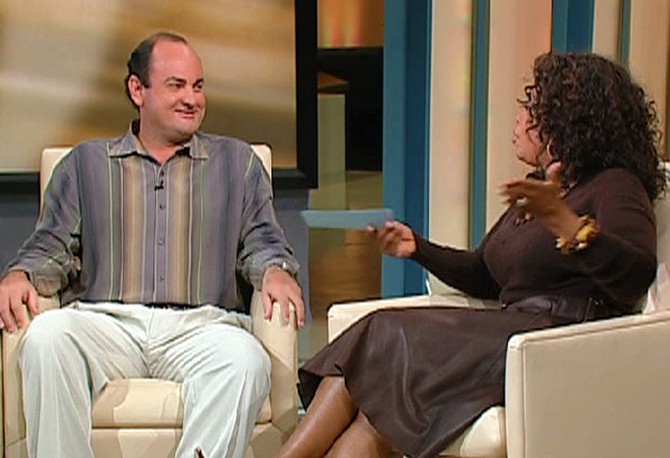
Curious about Richard and his wives' sleeping arrangements in the hotel room? Richard says that he slept with one of his wives while the other two slept in a separate room. "It's not this big decision thing," Richard says. "It's kind of the way the family's going and the way it kind of works out. Certainly we have choices and we direct our life the way we want it."
Richard says there is no force in the decision and his wives are intelligent women who expect Richard to be a good husband and father. "They know very much what they want, and so you've got to keep up with that," he says.
Julena says she does not feel jealous when Richard picks to sleep with another wife instead of her. "I get plenty of time. I get whatever I want. My relationship with him is very special, and I get as much time as I want with him," she says.
Richard says he has a unique relationship with each of his wives. "But is there a way I feel about each one? Absolutely. This isn't cattle. These are very intelligent people and they have desires and they have needs and they have wants, and so you kind of feel those things for each other."
Richard says there is no force in the decision and his wives are intelligent women who expect Richard to be a good husband and father. "They know very much what they want, and so you've got to keep up with that," he says.
Julena says she does not feel jealous when Richard picks to sleep with another wife instead of her. "I get plenty of time. I get whatever I want. My relationship with him is very special, and I get as much time as I want with him," she says.
Richard says he has a unique relationship with each of his wives. "But is there a way I feel about each one? Absolutely. This isn't cattle. These are very intelligent people and they have desires and they have needs and they have wants, and so you kind of feel those things for each other."
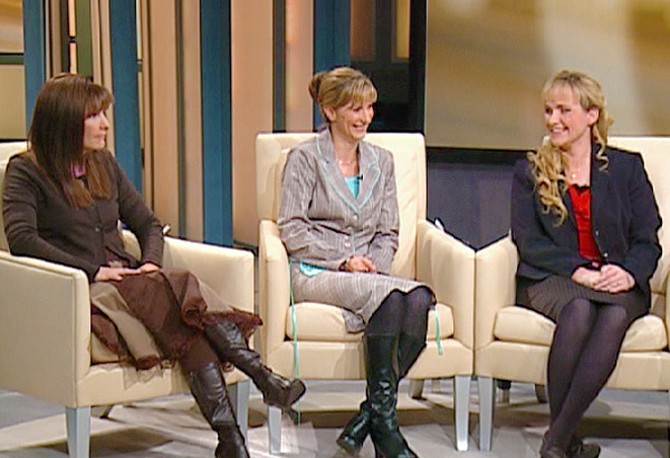
Richard, Tina, Julena and Rebecca all say they feel responsible for how their relationships are managed. "We take care of each other's needs, it's not him taking care of us," Julena says. "We're taking care of each other, the four of us."
"Sometimes one of us can give somebody else a different perspective. It's almost like a counselor," Rebecca says. "You have two counselors there all the time, but someone who truly knows what you're facing, what the situation is every day."
"Sometimes one of us can give somebody else a different perspective. It's almost like a counselor," Rebecca says. "You have two counselors there all the time, but someone who truly knows what you're facing, what the situation is every day."
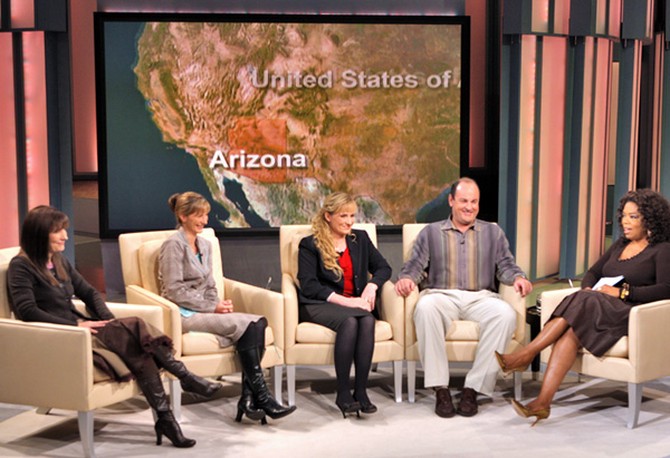
With three women in the same house, jealousy and hurt feelings seem like they would be a constant problem. Yet Richard says his wives know how to avoid those conflicts. "They have an incredible ability to space themselves throughout the home. It's not like there's women on top of each other all over the place. They're all doing different things."
What if they wanted to expand the plural family to include even more wives? Julena says the entire family would discuss it first, but that she would look forward to it. "It's a blessing," she says. "This is a belief we truly believe in. It's sacred to us."
What if they wanted to expand the plural family to include even more wives? Julena says the entire family would discuss it first, but that she would look forward to it. "It's a blessing," she says. "This is a belief we truly believe in. It's sacred to us."
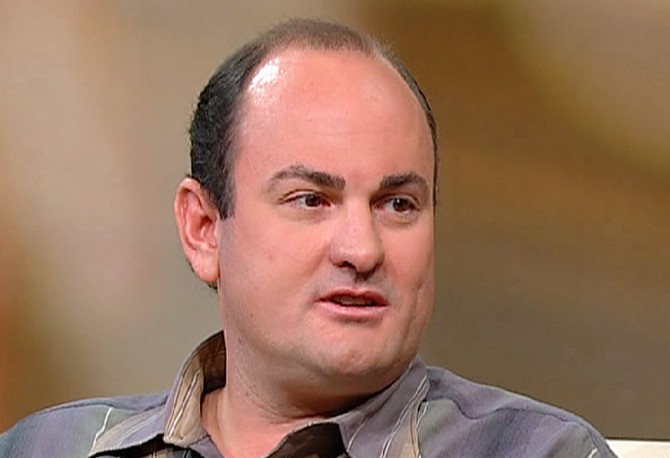
While many people think plural marriage is synonymous with forced marriage, rape and child abuse, Richard says the reason he agreed to speak outrisking prosecution, since polygamy is illegalis to open a dialogue. "This is a big step for people to look in and say, 'You know what? Yes, [plural marriage] may not be my personal choice, but it is a choice,'" Richard says.
Richard says the goal he shares with his wives is to raise children with opportunities and values. They will not, he says, force them to have plural families of their own. "We are for choice, for what people want to do when it does not harm other people," he says. "We hold our children and the raising of our children and our family very sacred."
Richard says the goal he shares with his wives is to raise children with opportunities and values. They will not, he says, force them to have plural families of their own. "We are for choice, for what people want to do when it does not harm other people," he says. "We hold our children and the raising of our children and our family very sacred."

Lisa's next stop in her investigation into the secret world of polygamy was Colorado City, Arizona—home to Warren Jeffs and his followers.
When his father, Rulon, died in 2002, Jeffs assumed control of the largest and most secretive polygamist sect, known as the Fundamentalist Church of Jesus Christ of Latter Day Saints, or FLDS. Jeffs allegedly controlled the marriages of his followers, assigning wives to favored members and taking wives away from others.
In May 2006, Jeffs was placed on the FBI's 10 Most Wanted Listand was later featured on America's Most Wanted based on charges that he organized "marriages" between men and underage girls. In August 2006 he was arrested near Las Vegas. And in September 2007, Jeffs was convicted on two counts of accomplice to rape. He now awaits sentencing and a second trial in Arizona on multiple charges of both accomplice to incest and sex with minors.
Lisa's guide in Colorado City is Carolyn Jessop. Carolyn was raised by three mothers and has 36 brothers and sisters. At 18, she says she was forced to marry a powerful 50-year-old FLDS leader, Merril Jessop. Carolyn had eight of Merril's 54 children, but she says she was always desperate for freedom. Four years ago, she risked her life by taking her children and escaping Colorado City in the middle of the night.
When his father, Rulon, died in 2002, Jeffs assumed control of the largest and most secretive polygamist sect, known as the Fundamentalist Church of Jesus Christ of Latter Day Saints, or FLDS. Jeffs allegedly controlled the marriages of his followers, assigning wives to favored members and taking wives away from others.
In May 2006, Jeffs was placed on the FBI's 10 Most Wanted Listand was later featured on America's Most Wanted based on charges that he organized "marriages" between men and underage girls. In August 2006 he was arrested near Las Vegas. And in September 2007, Jeffs was convicted on two counts of accomplice to rape. He now awaits sentencing and a second trial in Arizona on multiple charges of both accomplice to incest and sex with minors.
Lisa's guide in Colorado City is Carolyn Jessop. Carolyn was raised by three mothers and has 36 brothers and sisters. At 18, she says she was forced to marry a powerful 50-year-old FLDS leader, Merril Jessop. Carolyn had eight of Merril's 54 children, but she says she was always desperate for freedom. Four years ago, she risked her life by taking her children and escaping Colorado City in the middle of the night.
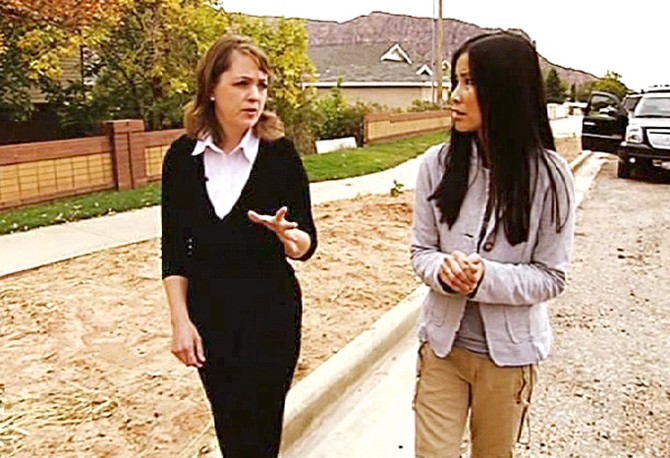
Carolyn says her ex-husband and Jeffs were very close. She says Jeffs always chose young, pretty girls for his wives. "When I lived in the community, he had upwards of 60 [wives]," she says. "But I've heard stories and reports now from people who have left that now he has upwards of 180."
Carolyn and Lisa's first stop in Colorado City is Merril Jessop's former house. She says she was Merril's fourth wife, but he added a fifth and sixth wife within six months. As they stand on the street in town talking, passing cars honk their horns at Lisa and Carolyn. "I'm sure we were not here for very long before word was circulated through the entire community that there's media here," Carolyn says.
But Carolyn says she isn't scared of FLDS members. "I think I've got a lot of strength in standing up to things I believe are wrong and so I'm not intimidated by it," she says. "I know that it makes them very angry I'm here."
After leaving Merril's house, Carolyn and Lisa next go to see if they can speak with Carolyn's sister. They knock on the door and hear people inside, but no one answers. "It's tragic but then it's not shocking," Carolyn says. "When you leave this, you know what your consequences are and this is one of the consequences. It doesn't make it easy."
Carolyn and Lisa's first stop in Colorado City is Merril Jessop's former house. She says she was Merril's fourth wife, but he added a fifth and sixth wife within six months. As they stand on the street in town talking, passing cars honk their horns at Lisa and Carolyn. "I'm sure we were not here for very long before word was circulated through the entire community that there's media here," Carolyn says.
But Carolyn says she isn't scared of FLDS members. "I think I've got a lot of strength in standing up to things I believe are wrong and so I'm not intimidated by it," she says. "I know that it makes them very angry I'm here."
After leaving Merril's house, Carolyn and Lisa next go to see if they can speak with Carolyn's sister. They knock on the door and hear people inside, but no one answers. "It's tragic but then it's not shocking," Carolyn says. "When you leave this, you know what your consequences are and this is one of the consequences. It doesn't make it easy."

In her book Escape, Carolyn Jessop recounts her life in Jeffs-controlled Colorado Cityand her dramatic escape. "I was not going to leave my children behind and so I basically escaped during the night when my ex-husband was away and it was very, very frightening."
She says she wasn't able to just leave because her husband was so powerful and close to Jeffs. "I basically knew too much," Carolyn says.
Carolyn says the polygamist community that she was in was very isolatedthere was no television, Internet, radios or newspapers. "Warren Jeffs locked this community down," she says. "They imposed, essentially, a morality police force that would rat on women if they weren't adhering to the proper dress code and have their hair a certain way."
She says she wasn't able to just leave because her husband was so powerful and close to Jeffs. "I basically knew too much," Carolyn says.
Carolyn says the polygamist community that she was in was very isolatedthere was no television, Internet, radios or newspapers. "Warren Jeffs locked this community down," she says. "They imposed, essentially, a morality police force that would rat on women if they weren't adhering to the proper dress code and have their hair a certain way."

Lisa says she observed stark differences between the two polygamist communities of Colorado City and Centennial Park. "Many of the people from Centennial Park are actually from Colorado City," she says. "But when the FLDS evolved, the folks from Centennial Park broke off. And they're actually a much more moderate and liberal people."
While Centennial Park seemed like an open community, Lisa says Colorado City felt very different. "We knew that we were being watched, obviously," she says. "People's houses had mirrored windows so people inside could see out, but you couldn't see in. It was just so surreal that this exists in the United States."
"When I left [Colorado City], it was like landing on another planet," Carolyn says. "I didn't even understand that there were basic human rights that I actually possessed as a woman. I was used to doing what I was told to do and you do not question."
Meanwhile in Centennial Park, Lisa says, "Richard has five flat screens in his house."
While Centennial Park seemed like an open community, Lisa says Colorado City felt very different. "We knew that we were being watched, obviously," she says. "People's houses had mirrored windows so people inside could see out, but you couldn't see in. It was just so surreal that this exists in the United States."
"When I left [Colorado City], it was like landing on another planet," Carolyn says. "I didn't even understand that there were basic human rights that I actually possessed as a woman. I was used to doing what I was told to do and you do not question."
Meanwhile in Centennial Park, Lisa says, "Richard has five flat screens in his house."
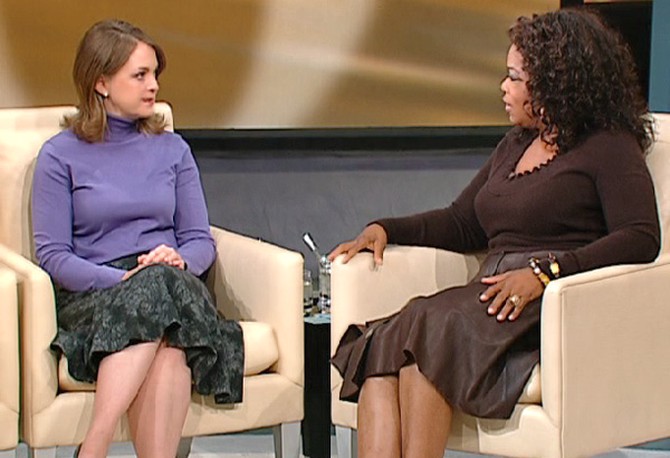
Carolyn says she thinks the best way to reduce the negative effects of polygamy is through decriminalizing it, because legalizing would be nearly impossible. "You'd have to rewrite every law that pertains to marriage, and there's no way to do that without jeopardizing traditional marriage," she says. "If there was a way to decriminalize it, people could live honestly and in the open and with dignity and their children could be more mainstreamed. Then the children would have more options."
 Hear what the teenagers of Centennial Park think about where they live.
Hear what the teenagers of Centennial Park think about where they live.
Explore your relationship
Explore your relationship
Published 10/26/2007

